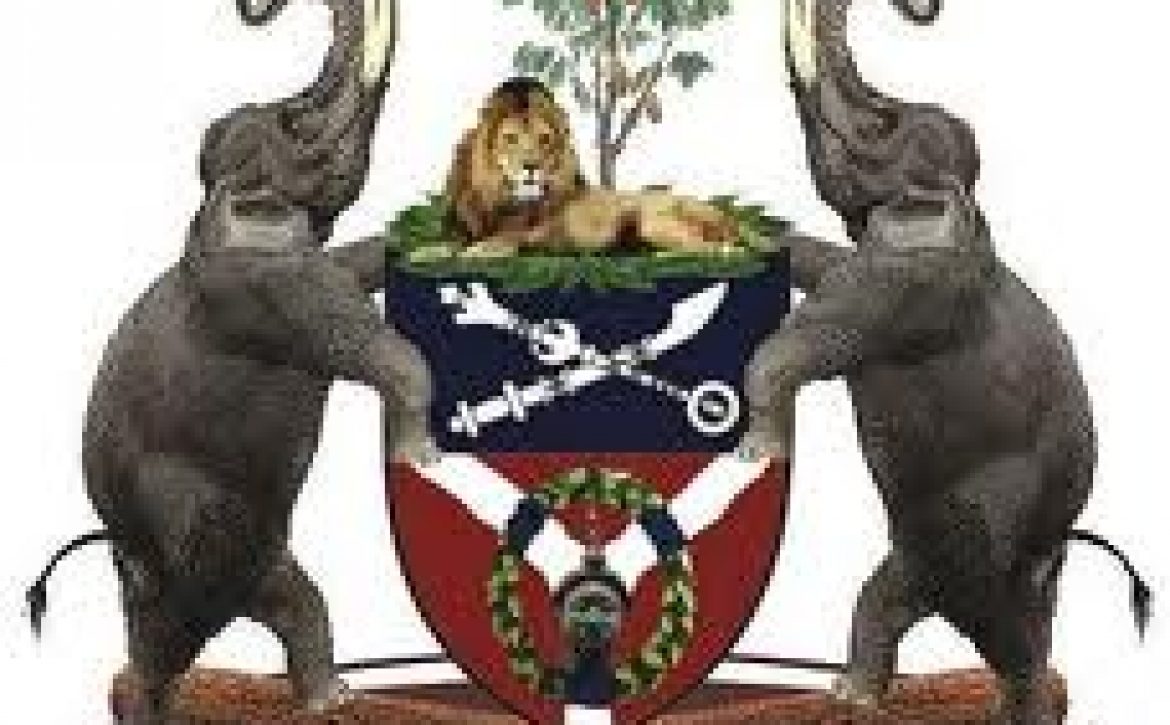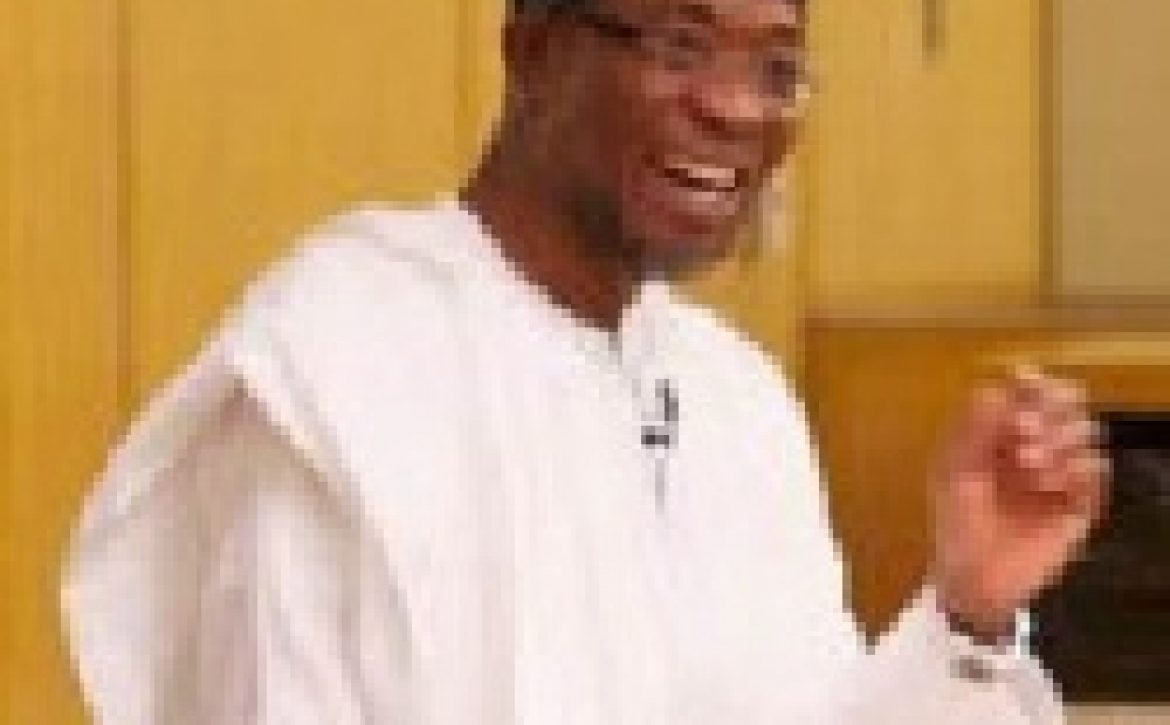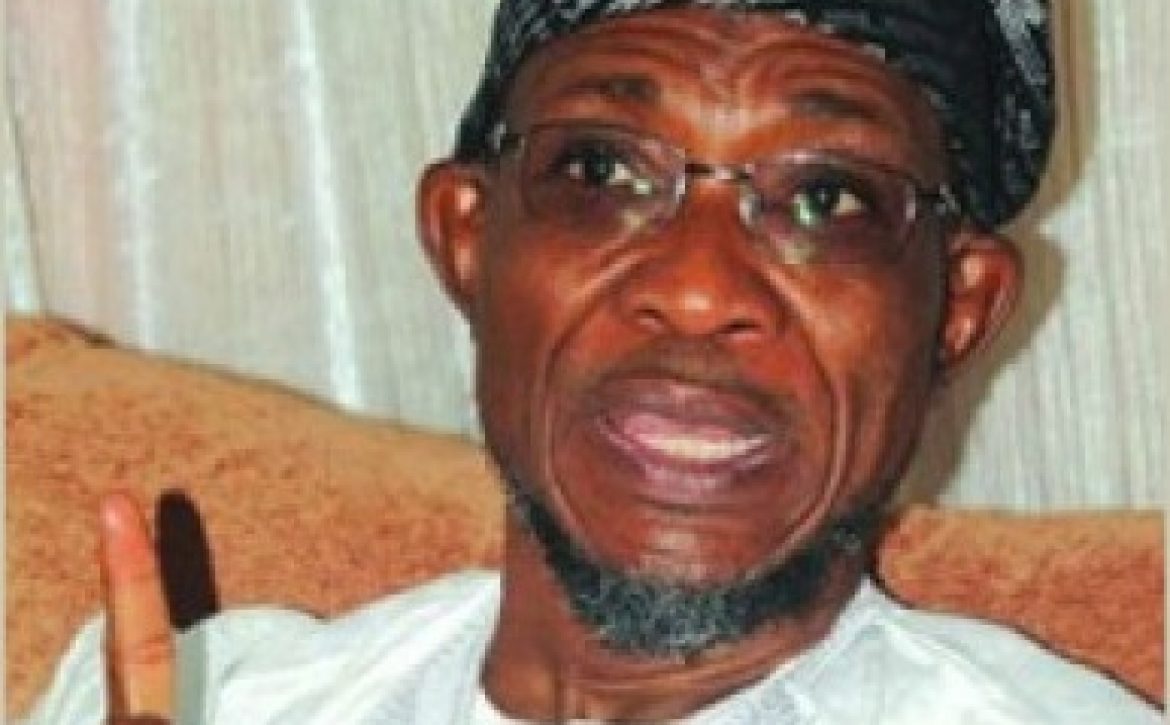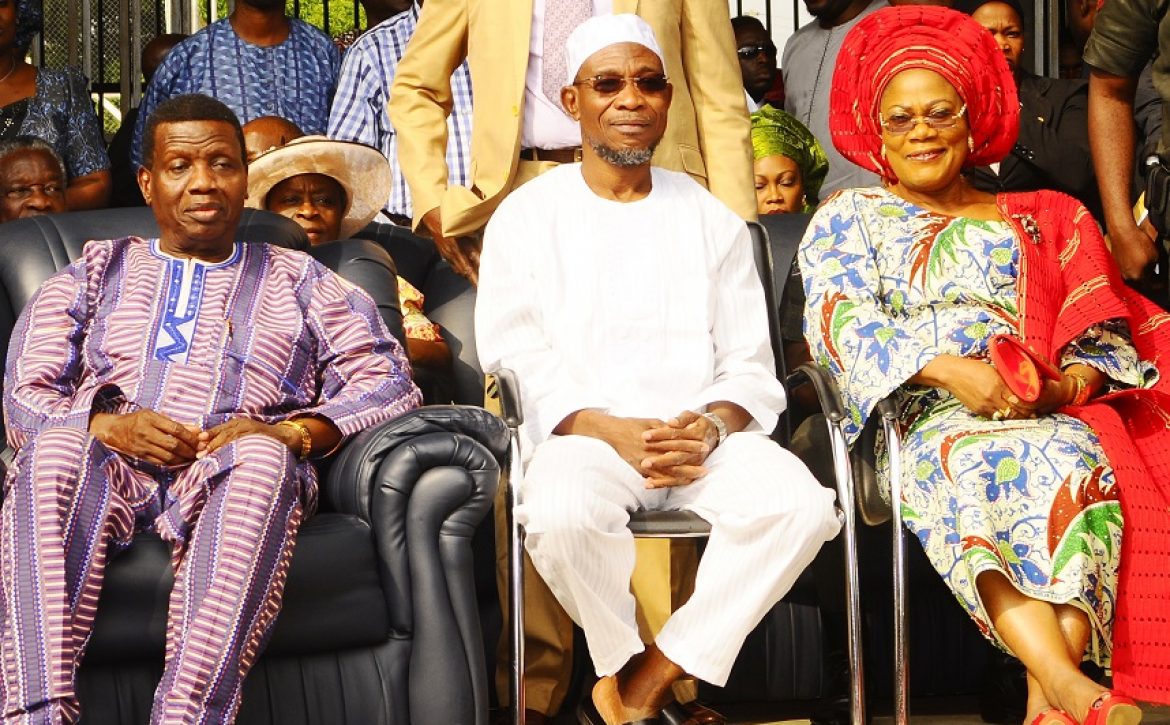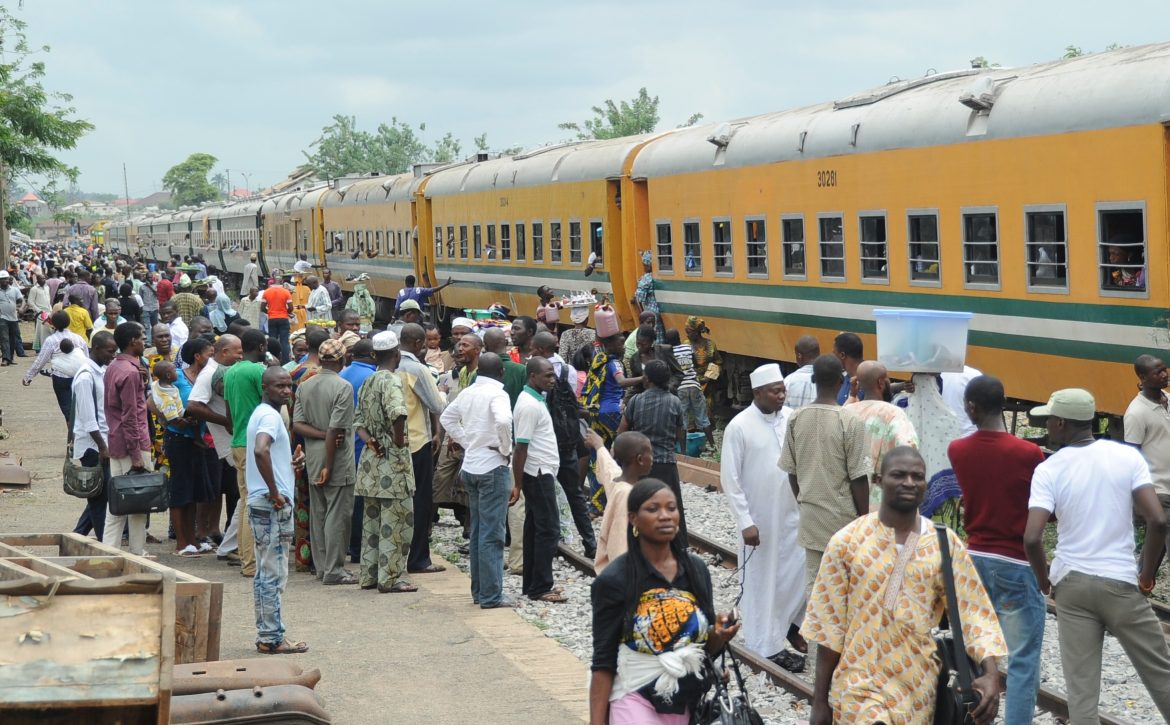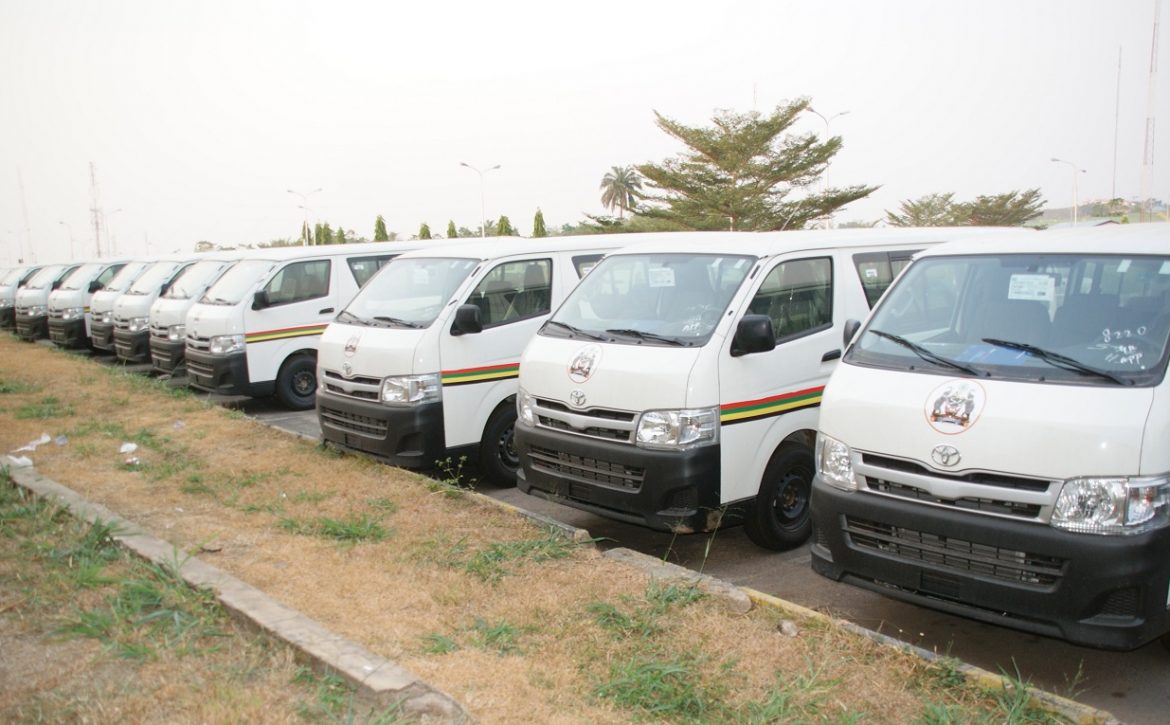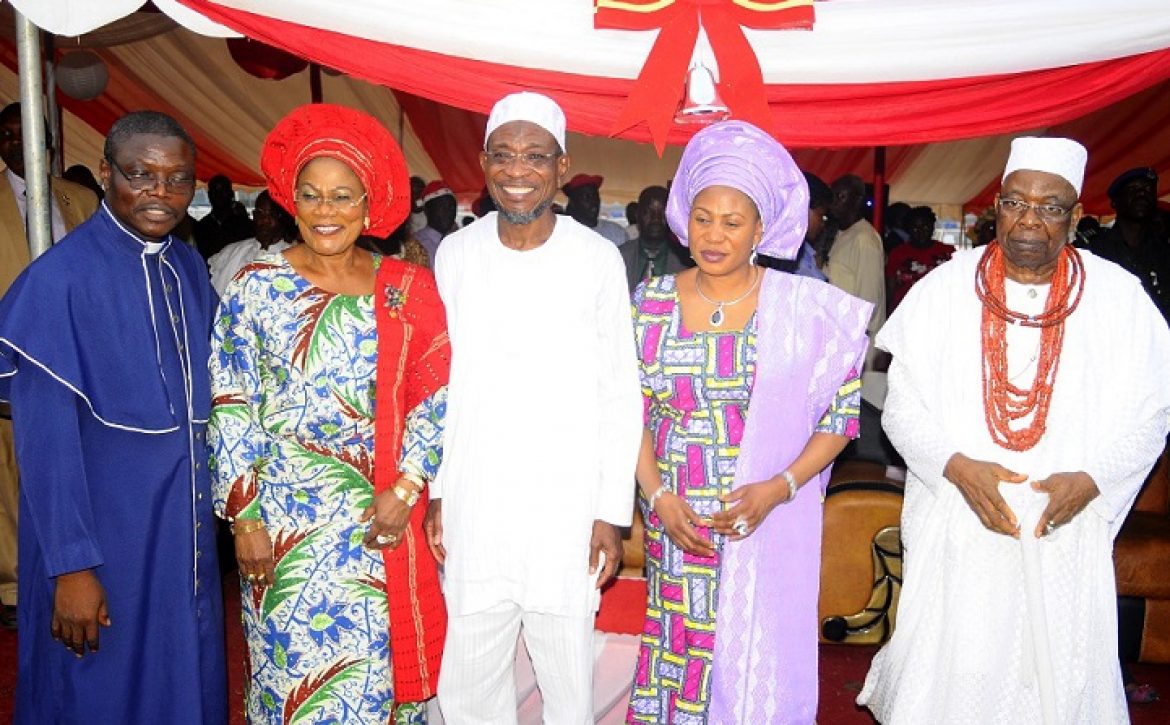 On Monday, 16th December, 2013, Governor Rauf Aregbesola took residents of the state by surprise when he presented before the floor of the State House of Assembly an executive bill requesting the lawmakers to consider and approve the creation of additional 27 local government development areas from the existing 30 local government councils in the state.
On Monday, 16th December, 2013, Governor Rauf Aregbesola took residents of the state by surprise when he presented before the floor of the State House of Assembly an executive bill requesting the lawmakers to consider and approve the creation of additional 27 local government development areas from the existing 30 local government councils in the state.
Unlike any other executive bill that usually emanate from the office of the Governor to the lawmakers, Governor Rauf Aregbesola took upon himself to personally present the bill at the floor of the assembly because of the importance his government attaches to it.
The presentation of the bill for the creation of additional 27 local government development areas was sequel to the submission of report of the 7-man local government creation committee headed by Professor Mojeed Alabi, former Speaker of the assembly between 1999 and 2003.
The reports after its submission was also vetted by another 5-man committee headed by the Secretary to the State Government (SSG), Alhaji Moshood Adeoti to test the appropriateness and justification of the recommendations of the Mojeed Alabi’s committee in meeting the yearnings and demands of the people of the state especially regarding the recommendation of a particular local government area or citing headquarters of such local government in a particular place.
Meanwhile, as a prelude to the required public hearing of the bill to become law, the Speaker of the State House of Assembly, Hon. Nojeem Sallam, shortly after receiving the bill from Governor Rauf Aregbesola at the assembly chamber, called on members of the public to forward their responses on the new bill for the creation of additional local government development areas to the house for necessary parliamentary review and consideration.
This, the political observers in the state believe will make the whole exercise to have direct impact on the lives of the citizenry mostly in the rural areas after they had interacted with members of the local government creation committee on their demands; agitations and expectations.
The plan by the current administration to create additional local government development areas in the state has therefore attracted the affection of a larger chunk of the residents of the state and it is being viewed as an additional value to the popularity and image of the incumbent Governor, Rauf Aregbesola, as somebody that keeps promises made to the electorate.
While presenting the bill for the creation of additional local government development areas, Governor Rauf Aregbesola told the 26 member assemblymen that his administration ventured into the creation of new council areas to make the government count and further bring it closer to the people at the grassroots level.
According to him, “we are here today to be part of history that will forever impact on the life of our people. The courageous step we are taking is in fulfillment of our avowed belief that the purpose of government is to deliver the greatest happiness to the greater number of the people. There is no gainsaying that the only way a government can deliver the greatest happiness to its citizenry is its level of closeness to the people. It is beyond contention that the closest government to the people should be the local government.
“Can we truly say that the existing local government system we have in the state is a true reflection of the desire of the citizens of the state? Are the councils in all honesty close enough to the people at the grassroots to enable them deliver the required services expected of a local government? The answer of course is No. If they are, why do we have agitations for more local governments?
“The reality, as we have found out since our assumption of office in the last three years, is that many local governments as presently constituted are too large in size as regards the area they cover; the size of its workforce as well as the quality of representation needed at the grassroots level. These have hindered the smooth running of our local governments to the extent that they merely survive to pay salaries and nothing more. The statutory duties of the local governments have been neglected so much that people had actually forgotten their existence within their locality.
Governor Rauf Aregbesola while speaking further on the bill, stressed that his administration in doing this, was committed to complying with the clear provision of Sections 7 and 8 of the Constitution of the Federal Republic of Nigeria 1999, as amended, adding that the committee was charged with the task of preparing the bill for a law to the state assembly in conformity with Section 8 of the 1999 Constitution of the Federal Republic of Nigeria.
While describing the bill tagged: “Local Government Areas (Creation and Administration) Bill 2013” as historic, Aregbesola maintained the newly created local government areas will co-exists with the existing 30 local governments specified in the Constitution of the Federal Republic of Nigeria.
Aregbesola said: “One significant aspect of the Bill is that the existing 30 Local Governments co-exist with the newly created local governments. As a matter of fact, Section 3 of the Bill clearly provides that pending the passage of an Act of the National Assembly to list them in the constitution as Local Government Areas, the 27 new Local Government Areas shall be 27 Local Council Development Areas (Local Counties) in the State with the names specified in schedule II of the Bill. This provision clearly takes care of confusion that might have arisen should there be a controversy as to the status of the Local Government if the existing and the newly created Local Council Development Areas are lumped together as 57 Local Government Areas in the state. We have done our best to act within the existing law in this regard.
He stated that the bill will be parliamentary system in nature in or der to be cost effective, people-oriented and development based.
“This Bill has some unique features that are meant to make local government administration cost-effective, people-oriented and development-based. To this end, the bill proposes to establish a parliamentary system of government at the local government level. The implication of this is that the Chairman and Vice Chairman of the Council would be an elected councillor from the party having majority seats in the council with other relevant qualifications. It is our firm conviction that this will inevitably reduce cost of governance; enhance quality of representation at the grassroots level and ensure smooth running of the local government administration.
“It is clear that despite the acute paucity of funds available to local governments, the amount spent on over-head and personnel already gulps all the council allocation. This proposed system would ensure transparency, probity and a more productive local government administration system in the State of Osun.
“Section 17 of the bill further creates the office of the Council Manager who shall be the Administrative Head of the Local Government Council. He or she shall be designated as “Council Manager” who shall be a civil servant not above grade level 14. The Council Manager shall be the highest level of officer in the Local Government Council.
“In making this Bill, we are not oblivious of the career progression concern of officers above grade level 14 in the Local Government Council. Affected officers in the employment of the Local Government, upon advancement beyond Grade Level 14, shall be deployed by the Local Government Service Commission in conjunction with the Civil Service Commission to any Ministry, Department or Agency of government as they may so deem fit.
Governor Aregbesola also disclosed that there shall be creation of local government economic planning board to re-engineer the local government system in the state in line with Section 7(3) of the 1999 constitution.
The board, according to him, will act in advisory capacity to develop economic blueprint for the local government council; to develop a framework for infrastructural and sustainable development of the council area; to advice the local government council on the enhancement of commercial and trading activities; to develop the parameters for agricultural development and advise on any other ancillary or relevant matter passed to it by the council.
He stated further that the board shall not be an implementation body but its report shall be submitted to the local government council for implementation; and it shall not be involved or take part in the day-to-day running of the local government.
He concluded that when the bill is passed into law by the lawmakers, it shall not only ensure a virile local government system, it would also place the assembly in the hall of fame of progressive and innovative legislatures at all time in the state in particular and nation at large.
Though details of the new local governments and their headquarters were still scanty as at the time of filing this report, it was gathered that the creation affected some old long existing local governments such as Oriade; Ife-South, Ejigbo; Odo-Otin; Iwo; Ayedaade; Irewole; Atakunmosa-East; Atakunmosa-West; Ede-South; Egbedore; Ife-North; Ife-East; Olorunda; Osogbo; Ifelodun, among others.
While responding after receiving the bill from Aregbesola, the Speaker of the State House of Assembly, Hon. Folasayo Nojeem Sallam therefore called the members of the public to forward to the House their response on the new bill.
He opined that this action has been long overdue considering the politics of the state assuring that the bill would scale through with little or no stress considering the fact the assembly is made up of members of a single political party (APC). He noted that the lawmakers in the state have been working harmoniously with the executive to move the state forward.
DAILY INDEPENDENT
 The Governor of the State of Osun, Ogbeni Rauf Aregbesola has said Osun will have one of the best education systems in the country, when his administration completes its reforms in the sector.
The Governor of the State of Osun, Ogbeni Rauf Aregbesola has said Osun will have one of the best education systems in the country, when his administration completes its reforms in the sector.

